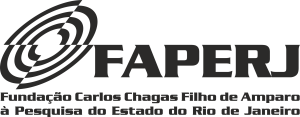How to cite Segregation Wiki: Difference between revisions
Nettoworks (talk | contribs) |
Nettoworks (talk | contribs) No edit summary |
||
| Line 5: | Line 5: | ||
Example: [[Social segregation]]. (2024, October 10). In ''Segregation Wiki.'' <nowiki>https://segregationwiki.cityscience.group/index.php/Social_segregation</nowiki> | Example: [[Social segregation]]. (2024, October 10). In ''Segregation Wiki.'' <nowiki>https://segregationwiki.cityscience.group/index.php/Social_segregation</nowiki> | ||
==The | ==The Multidisciplinary Landscape of Segregation Research== | ||
''Segregation Wiki'' originated from a comprehensive meta-study. By analyzing open-access excerpts from over 10,000 documents in the Scopus dataset, we identified and mapped the diverse forms of segregation studied across more than 160 disciplinary fields, dating back to 1913. | ''Segregation Wiki'' originated from a comprehensive meta-study. By analyzing open-access excerpts from over 10,000 documents in the Scopus dataset, we identified and mapped the diverse forms of segregation studied across more than 160 disciplinary fields, dating back to 1913. | ||
Additionally, we developed an extensive '''[https://segregationwiki.cityscience.group/index.php/An_Ontology_of_Segregation ontology of segregation forms]''' to semantically organize access to this vast transdisciplinary landscape—the first systematic, bottom-up classification of its kind. By leveraging network analysis and AI-driven semantic generation, this ontology captures the relationships between various segregation forms as reflected in the literature, categorized under distinct 'labels' or 'types' of segregation. | Additionally, we developed an extensive '''[https://segregationwiki.cityscience.group/index.php/An_Ontology_of_Segregation ontology of segregation forms]''' to semantically organize access to this vast transdisciplinary landscape—the first systematic, bottom-up classification of its kind. By leveraging network analysis and AI-driven semantic generation, this ontology captures the relationships between various segregation forms as reflected in the literature, categorized under distinct 'labels' or 'types' of segregation. | ||
View the [https://kimonkrenz.github.io/openseadragon/ zoomable high-resolution figure] for more detail, or explore the [https://segregation-ontology.cityscience.group/ interactive ontology], which is currently under development. | |||
| Line 18: | Line 20: | ||
Please use this reference while our article is under review in a high-impact scientific journal. | Please use this reference while our article is under review in a high-impact scientific journal. | ||
==Founders == | |||
Segregation Wiki was created by Vinicius M. Netto, Maria Fiszon, Otávio Peres, Kimon Krenz, Desirée Rosalino and Renato Saboya. | |||
The '''main administrators''' are Vinicius M. Netto and Maria Fizson. | |||
The '''website''' was developed by Zesto Tecnologias (Rio de Janeiro) | |||
==Funding == | |||
'''Main funding for Segregation Wiki''' is provided by the '''Carlos Chagas Filho Foundation for Research Support of the State of Rio de Janeiro (Fundação Carlos Chagas Filho de Amparo à Pesquisa do Estado do Rio de Janeiro, FAPERJ''', Fundação Carlos Chagas Filho de Amparo à Pesquisa do Estado do Rio de Janeiro) under the research project ''"Immersive Technologies for More Resilient, Fair, and Sustainable Cities"'' (''"Tecnologias Imersivas para Cidades mais Resilientes, Justas e Sustentáveis,"'' Proc. E-26/211.381/2021), with Vinicius M. Netto serving as Principal Investigator and Project Administrator. | |||
[[File:FAPERJ logo preto.png|center|frameless]] | |||
'''Additional funding for researchers''' comes from: | |||
CITTA UPorto and CEEC FCT (VN grant 2023.07510.CEECIND), | |||
CNPq (VN grant 315086/2020-3, MF grant E-26/201.573/2023), | |||
CAPES (OP grant 88887.877125/2023-00). | |||
Revision as of 11:19, 11 October 2024
Please cite Segregation Wiki articles in the following format (subject to different citation styles, e.g. APA):
Article title. (Year, Month Day). In Segregation Wiki. URL
Example: Social segregation. (2024, October 10). In Segregation Wiki. https://segregationwiki.cityscience.group/index.php/Social_segregation
The Multidisciplinary Landscape of Segregation Research
Segregation Wiki originated from a comprehensive meta-study. By analyzing open-access excerpts from over 10,000 documents in the Scopus dataset, we identified and mapped the diverse forms of segregation studied across more than 160 disciplinary fields, dating back to 1913.
Additionally, we developed an extensive ontology of segregation forms to semantically organize access to this vast transdisciplinary landscape—the first systematic, bottom-up classification of its kind. By leveraging network analysis and AI-driven semantic generation, this ontology captures the relationships between various segregation forms as reflected in the literature, categorized under distinct 'labels' or 'types' of segregation.
View the zoomable high-resolution figure for more detail, or explore the interactive ontology, which is currently under development.
If you wish to cite the original method used for identifying segregation forms or the network analyses presented on Segregation Wiki, please reference the following source:
Netto, V.M., Krenz, K., Fiszon, M., Peres, O., & Rosalino, D. (2024). Decoding segregation: Navigating a century of segregation research across disciplines and introducing a bottom-up ontology. ArXiv. https://doi.org/[DOI]
Please use this reference while our article is under review in a high-impact scientific journal.
Founders
Segregation Wiki was created by Vinicius M. Netto, Maria Fiszon, Otávio Peres, Kimon Krenz, Desirée Rosalino and Renato Saboya.
The main administrators are Vinicius M. Netto and Maria Fizson.
The website was developed by Zesto Tecnologias (Rio de Janeiro)
Funding
Main funding for Segregation Wiki is provided by the Carlos Chagas Filho Foundation for Research Support of the State of Rio de Janeiro (Fundação Carlos Chagas Filho de Amparo à Pesquisa do Estado do Rio de Janeiro, FAPERJ, Fundação Carlos Chagas Filho de Amparo à Pesquisa do Estado do Rio de Janeiro) under the research project "Immersive Technologies for More Resilient, Fair, and Sustainable Cities" ("Tecnologias Imersivas para Cidades mais Resilientes, Justas e Sustentáveis," Proc. E-26/211.381/2021), with Vinicius M. Netto serving as Principal Investigator and Project Administrator.

Additional funding for researchers comes from:
CITTA UPorto and CEEC FCT (VN grant 2023.07510.CEECIND),
CNPq (VN grant 315086/2020-3, MF grant E-26/201.573/2023),
CAPES (OP grant 88887.877125/2023-00).
